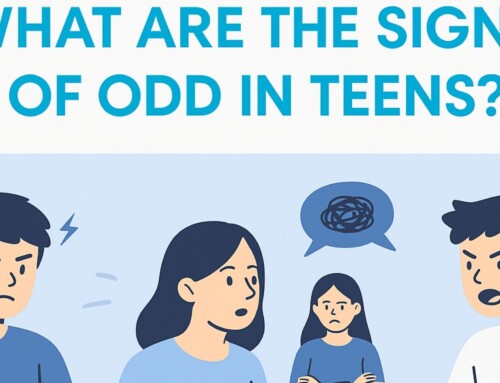Counselor on Children and Divorce: The Top Ten Mistakes Parents Can Avoid
The process of divorce is not typically a pleasant one for anyone. But for children especially, it can cause a whirlwind of confusion, anxiety, and negative emotions. Parents should take care to proceed with divorce in a way that will cause the least amount of trauma to all children involved. The following 10 mistakes are classic ones that many couples make in the process of divorce, although they are not usually made with the intent to harm their children. Often, children are just caught up in the middle of the storm, but there are ways parents can minimize this storm for their children.
10 Mistakes Divorcing Parents Make
- Battle in front of the children
- Use the child as a messenger
- Put child in a “parental role”
- Disrupt the usual support systems for children
- Become the “Disney” parent
- Date in front of children the first year after divorce
- Make promises you can’t keep
- Make child feel one parent is the “good” parent and the other the “bad” parent
- Have different rules at each house
- Discuss money matters with the child
1. Fighting in Front of the Children:
Parents can psychologically damage their children by screaming and arguing in front of them. When children witness this type of exchange, they may become overwhelmed with emotions ranging from guilt to fear. They become victims of parental infighting because they are too young to understand and evaluate what their parents are doing. Even arguments over the phone can be harmful for children to hear. They may only be hearing one side of the argument, but the effects are just the same. Parents need to strive to keep conversations calm and maintain stability and safety for their children.
2. Using children as messengers:
If parents will not, or cannot, communicate with each other, they should refrain from using their children as messengers. Children will not always understand the information being passed along, and sometimes information is inappropriate for them to know. Many children come to worry about how the message will be received, and feel responsible for the reaction of the parent hearing it. In the same vein, it is harmful for parents to use their children to spy on the other parent, thus placing them in a position to “lose” if they comply. If parents are unable to communicate with one another, using a third party, like a lawyer, is the best solution.
3. Putting children in parental roles:
Some parents may make statements such as “now he is the man of the house” or “she’s mommy’s little helper” after they divorce. Although these statements are meant to be complementary, they can lead to long term problems as children believe they have to assume adult responsibilities at a young age. Parents may put the child in a position to take care of the parent’s emotional needs by discussing personal issues with them or treating them as their absent partner. Despite the fact that these children sometimes appear to be very mature, responsible, and well-behaved, being put in a parental role can have lasting repercussions including difficulties setting boundaries, relating to peers, and forming intimate relationships. Children need time to develop their sense of identity, and this occurs in a nurturing environment with age-appropriate responsibilities.
4. Disrupting the usual support system for the children:
During the process of divorce, many parents forget the support and security children receive from friends, extended family, school, church/temple, and other outside activities (like athletics). Children who are taken away from these sources of support, face additional trauma – their world is already in a tailspin, and the additional disruption can be overwhelming. Parents should make every effort to continue to nurture and encourage their children while maintaining their typical schedule of activities and support systems.
5. Becoming the “Disney” parent:
It is important to remember that children need the direction and guidance of a parent, not another playmate. In the wake of divorce, parents are often motivated by guilt and/or the desire to be their child’s favorite to replace rules and responsibility with fun activities and gifts. They trade in the development of long-term maturity for short-term fun with excuses such as “well I only have them for the weekend”. In their immaturity, children may perpetuate this lack of parenting by equating the parent whom they have the most fun with as the parent they love the most. Divorced parents must remember that they are still a parent first. A lack of parenting sets their child up for long-term failure by not equipping them with the reality that life involves following rules and assuming responsibilities.
6. Dating before nine months to a year after the divorce:
Parents and children alike need time after a divorce to transition to a single parent home. Children experience a significant amount of emotional insecurity, and it is important for them to become emotionally strong before facing the prospect of new adults entering their lives. Their are a lot of unknowns when parents begin dating, such as how long the new adult will be around, and this can take a toll on a child. It also hinders the development of healthy routines at a critical time in a child’s life. When parents date soon after a divorce, children may come to feel that they are being robbed of needed time with their parent. When a parent does begin to date, it is important for them to remember to discuss it beforehand with their children. Listen and validate their feelings, remind them that they are still a priority, and set healthy boundaries around contact with the new adult. When the relationship begins to become serious, the parent should look for activities that would involve the child too.
7. Making promises you can’t keep:
This happens frequently after divorce, but parents should make every effort to avoid making promises they can’t keep. Children are emotionally vulnerable after a divorce, so they are more likely to perceive a broken promise as a reflection of how much they are valued and loved. They aren’t able to see that it may be due to a mistake or overextended parent.
8. The “good parent” – “bad parent”:
This mistake often puts undue pressure on a child to pick sides. Parents who don’t remain consistent during and after divorce, and who make the other parent out to be “bad”, are causing emotional harm to their children. It is important for childrens’ adjustment to be loved and maintain close bonds with both parents.
9. Different set of rules at each house:
Stability is key in helping children feel secure after their parents divorce. Reestablish rules and expectations and be consistent across all households. Parents should strive to maintain consistent communication regarding these rules and any consequences given at each household so that children don’t become confused or frustrated.
10. Discuss money matters with the child:
Many times, divorce can cause a financial burden for both parties involved, and naturally comments may unintentionally be thrown out that communicate worry and fear to children. Children are not mature enough to understand the full situation, and may begin to feel guilty even asking for basic items like school supplies or clothing. Teenagers may inadvertently take on some of the perceived burden by seeking ways to provide for the family.
Divorce can be a difficult process to navigate with children and teens. Emotions run high and the transition may require additional help. Call Total Life Counseling Center at (561) 560-7110 today to schedule an appointment with our Boca Raton children and teen divorce counselor.
Filed in: Boca Raton, Divorce
Share This Story, Choose Your Platform!
Total Life Counseling Center consists of Licensed Counselors, masters level therapists, Español counselors, Licensed Mental Health Counselors, business coaches, and image enhancement coaches who provide counseling for emotional, mental, physical and spiritual care including marriage, individual, family, substance abuse and more. TLC’s family, trauma and marriage experts have been interviewed on National and Local TV/Radio over 200 times for their expert advice on Fox News, OWN, WETV, ABC’s Medical Minute and more. Our skilled counselors are relational, approachable and specialists providing therapy services in the Central Florida area including: Orlando, Winter Park, MetroWest, Windermere, Dr. Phillips, East Orlando, Lake Mary, and Clermont, Boca Raton Florida, and Dallas, TX.






